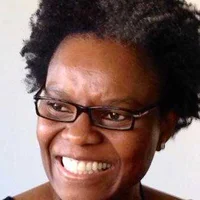Datafication and Digital Rights in East Africa
The Datafication and Digital Rights project sought to understand how digitisation and datafication reshape public communications and the informal economy.
Principal Investigator: Alcinda Honwana
Co-investigator: Rosemary Okello-Orlale
Co-investigator: Gianluca Iazzolino
Co-investigator: Peter Chonka
Co-investigator: Stephanie Diepeveen
Co-investigator: Daivi Rodima-Taylor
More and more aspects of people’s daily lives in East Africa are mediated through digital platforms. As internet connectivity continues to expand at a rapid pace, ever larger numbers of people are using networked devices, and thereby producing increasing amounts of data.
This ‘datafication’ can be a source of value for many different actors – states, businesses big and small, civil society organisations and individuals. It is harvested in multiple ways by the devices and platforms people use, fed back into technologies for everyday activities, and informs how digital platforms operate and how we interact with them.
Little is known in global South contexts about the processes that harvest and commercialise data, and how they relate to citizens’ rights and agency
The project sought to understand how digitisation and datafication are reshaping public communications and the informal economy in East Africa. By focussing on Kenya, Ethiopia and Somalia, the project explored how the ‘datafication’ of everyday experiences and economic activity affects the nature of digital rights for citizens, vis-à-vis states, the market and each other.
Researchers

Alcinda Honwana
Alcinda Honwana is Visiting Professor at the Firoz Lalji Institute for Africa and Centennial Professor at the Department of International Development. Alcinda's research focusses on youth politics, social movements and political protest.
Email: A.M.Honwana@lse.ac.uk

Rosemary Okello-Orlale
Rosemary Okello-Orlale is a quantitative data analyst interested in public policy, education and making data work for public good. She is the Director of Africa Media Hub at Strathmore University Business School and head of the Strathmore Data Analytics Centre.

Gianluca Iazzolino
Gianluca Iazzolino's main research interests are ICTs, digital finance and informal economy with a focus on the relationship between technological innovation and power dynamics.
Email: g.iazzolino1@lse.ac.uk

Pete Chonka
Peter Chonka is a Lecturer in Global Digital Cultures at King’s College London Department of Digital Humanities. His research focuses on the impacts of new media technologies on state reconstruction and culture in the Horn of Africa.
Email: peter.chonka@kcl.ac.uk

Stephanie Diepeveen
Stephanie Diepeveen is a Research Associate in the Bennett Institute for Public Policy at the University of Cambridge. Her research examines everyday politics, forms of power and new media technologies in East Africa.
Email: snd31@cam.ac.uk

Daivi Rodima-Taylor
Dr Daivi Rodima-Taylor is a social anthropologist at the Boston University African Studies Center. Her research focuses on informal economies and local innovation, fintech and inclusion, migration and diaspora studies, Africa and Eastern Europe.
Email: drodima@uci.edu
